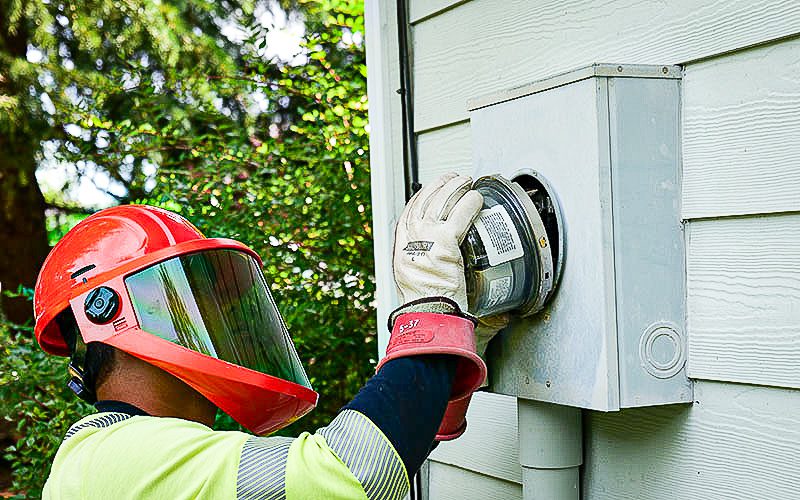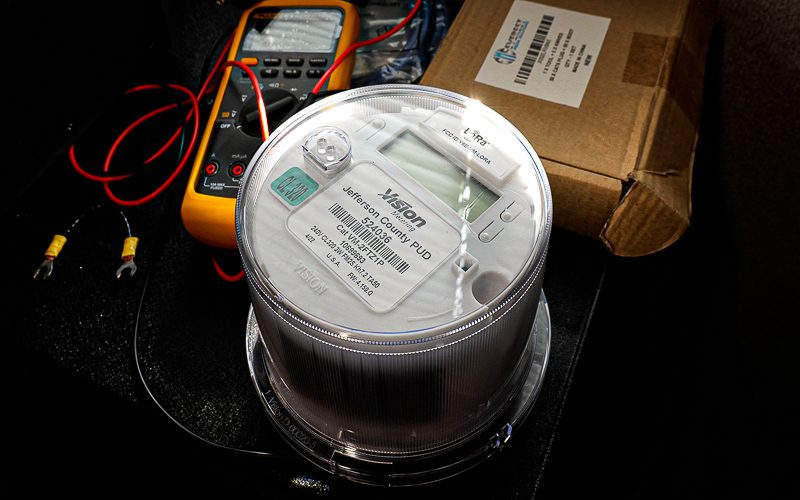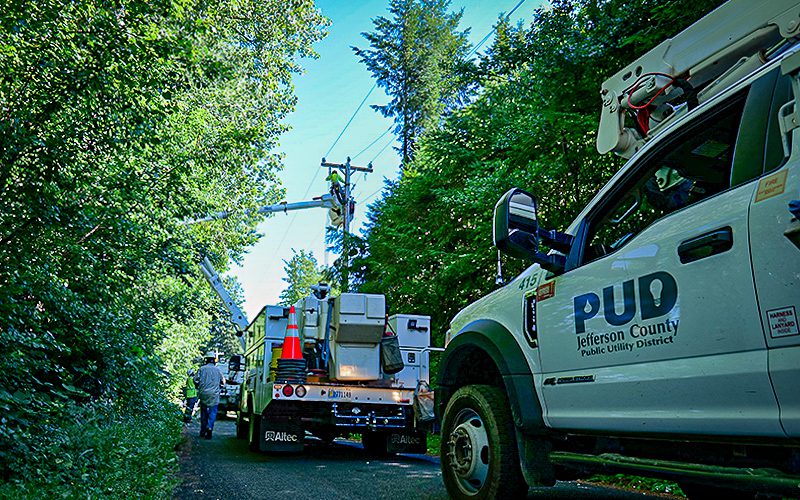Jefferson PUD assumed maintenance of the electrical grid from PSE in 2013, inheriting a diverse system of analog and digital meters in various state of repair and disrepair.
After an extensive meter study the PUD, and Board of Commissioners in 2021, determined the Advanced Metering Infrastructure (AMI) metering structure would best serve our customers. AMI systems make up more than 120 million residential electrical meters nationwide. The AMI system allows for two-way communication between the utility and independent meters to aid in ON/OFF shutoff, outage tracking and peak power consumption monitoring utility wide.
In late-2022 the PUD began replacement of electrical meters district wide. Meter installation by meter readers and line crew staff are underway throughout the county. Prior to installation of the new meter the installer will do a door-knock for the homeowner, though homeowners are not required to be home during the meter swap. Replacement of the meter only takes a few minutes but does require the loss of power to the home. After installation, a door hanger noting the work being completed will be left by our meter reader.
For more information on the current meters and AMI or smart meters see our Q&A fields below.


